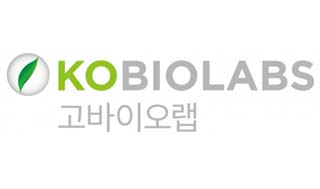기업
KoBioLabs’s microbiome medicine is approved for phase 1 in Australia
by Joungmin Cho
Autoimmune disease treatment ‘KBLP-001’ has entered phase 1 study as a first microbiome agent in Korea…Targeting for phase 2 clinical study in the U.S. by 2020

South Korea’s new microbiome drug is entering global clinical trial for the first time. KoBioLabs announced on 4th Sep. that it has been approved for the Australian phase 1 clinical study for its autoimmune disease treatment drug ‘KBLP-001’.
KBLP-001 is a candidate for a new drug selected from the microbiome library owned by KoBioLabs, and its excellent efficacy has been confirmed in testing animal models for various autoimmune diseases, including atopic dermatitis, inflammatory bowel disease and psoriasis, the company explained.
Since the fourth quarter of last year, KoBiolabs has prepared clinical trials for new microbiome drugs through cooperation with foreign Contract Manufacturing Organizations (CMO) and Contract Research Organization (CRO) and established a local subsidiary in Australia to manage clinical trials smoothly. KoBioLabs. In this August, KoBioLabs applied for approval of KBLP-001's Australian phase 1 clinical study.
Phase 1 study will begin with 36 healthy adult subjects in two ways: Single Administration (SAD) and Multiple Administration (MAD).
The goal is to check the safety, drug tolerance, and PK of KBLP-001 through phase 1 study and submit the U.S. clinical phase 2 study development plan (IND) for patients with atopic dermatitis during the first half of 2020. To achieve the goal, they held a pre-IND meeting with the U.S. Food and Drug Administration in July and are planning to reflect FDA's opinion in its future clinical phase 2 design.
KoBioLabs is currently developing various microbiome candidates including KBLP-001, and is preparing to enter the phase 1 clinical study for KBLP-002 (for autoimmune disease) and KBLP-003 (for C.difficile infection) within the second half of 2020.
"By entering the global phase 1 clinical study of KBLP-001, we have been able to check KoBioLabs’ research and development capabilities. And we look forward to becoming a leading company in the field of microbiome by successfully completing this phase 1 and entering phase 2 clinical studies in the future." said CEO Ko Gwang-pyo of KoBioLabs.


















